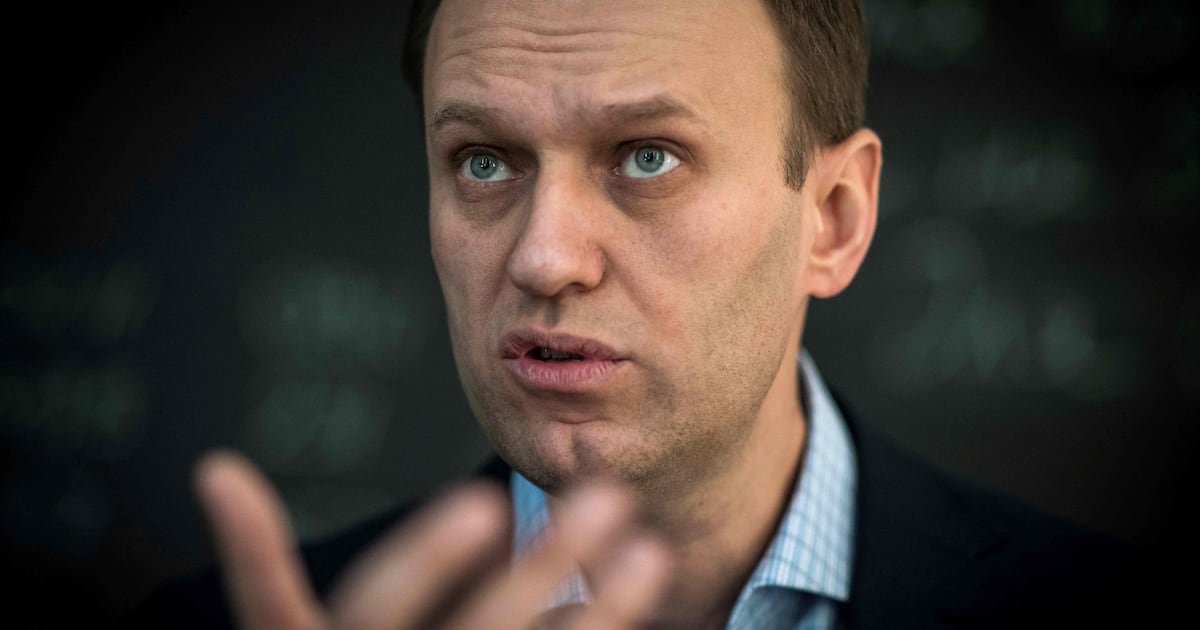World
Navalny’s Widow Claims Poisoning After Foreign Lab Tests

Yulia Navalnaya, the widow of prominent Russian opposition leader Alexei Navalny, announced that two foreign laboratories have confirmed he was poisoned before his death. Navalny, who was 47, passed away on February 16, 2024, while incarcerated in a Russian prison located in the Arctic Circle, marking a significant blow to the opposition movement in Russia.
In a video posted on social media platform X, Ms. Navalnaya detailed how biological samples from her husband were smuggled abroad for testing. According to her, both laboratories in different countries reached the same conclusion: “Alexei was killed. More specifically, he was poisoned.” She urged the laboratories to release their findings, stating, “These results are of public importance and must be published. We all deserve to know the truth.”
The Kremlin has consistently denied allegations of foul play in Navalny’s death. Presidential spokesman Dmitry Peskov responded to Ms. Navalnaya’s remarks, saying, “I don’t know anything about these statements of hers, and I can’t say anything.” Official sources in Russia maintain that Navalny’s political allies are dangerous extremists and assert that President Vladimir Putin enjoys widespread support among the populace.
Navalny had long been a vocal critic of the Russian government, describing it as a “brittle criminal state run by thieves, sycophants and spies.” He warned that Russia could face significant political upheaval, including a revolution. In a poignant essay written in 2023, he criticized the Russian elite for failing to seize the chance to reform the country following the dissolution of the Soviet Union in 1991.
Navalny’s international prominence grew after he returned to Russia in 2021 from Germany, where he was recovering from a poisoning attempt involving a nerve agent. He was arrested upon arrival and subsequently imprisoned on charges he claimed were fabricated to silence him. Last year, Ms. Navalnaya dismissed findings from Russian investigations that suggested her husband died from “a combination of diseases.”
While some US intelligence agencies have stated that there was no direct order from Putin to kill Navalny, reports from credible sources like the Associated Press and the Wall Street Journal indicate the complexities surrounding his death are far from resolved.
In her video, Ms. Navalnaya painted a harrowing picture of her husband’s final moments. She recounted that he felt unwell in a small exercise cell, eventually collapsing in pain. “Alexei lay on the floor and pulled his knees up to his stomach and moaned in pain,” she said. She also described his distress, stating that he complained of burning sensations in his chest and stomach, which culminated in vomiting.
She presented a photograph of what she claimed was the exercise cell, showing a disturbing scene. Ms. Navalnaya suggested that the truth about her husband’s death poses an “inconvenient truth” for certain unnamed politicians in the West. However, she did not provide further details regarding this claim.
As the investigation into Navalny’s death continues to unfold, the implications for Russian politics and international relations remain significant. The demand for transparency by Ms. Navalnaya highlights ongoing concerns about human rights and the treatment of political dissenters in Russia.
-

 Top Stories3 months ago
Top Stories3 months agoTributes Surge for 9-Year-Old Leon Briody After Cancer Battle
-

 Entertainment4 months ago
Entertainment4 months agoAimee Osbourne Joins Family for Emotional Tribute to Ozzy
-

 Politics4 months ago
Politics4 months agoDanny Healy-Rae Considers Complaint After Altercation with Garda
-

 Top Stories4 months ago
Top Stories4 months agoIreland Enjoys Summer Heat as Hurricane Erin Approaches Atlantic
-

 World5 months ago
World5 months agoHawaii Commemorates 80 Years Since Hiroshima Bombing with Ceremony
-

 Top Stories3 months ago
Top Stories3 months agoNewcastle West Woman Patricia Foley Found Safe After Urgent Search
-

 Top Stories5 months ago
Top Stories5 months agoFianna Fáil TDs Urgently Consider Maire Geoghegan-Quinn for Presidency
-

 World5 months ago
World5 months agoCouple Convicted of Murdering Two-Year-Old Grandson in Wales
-

 World5 months ago
World5 months agoGaza Aid Distribution Tragedy: 20 Killed Amid Ongoing Violence
-

 World5 months ago
World5 months agoAristocrat Constance Marten and Partner Convicted of Infant Murder
-

 Top Stories4 months ago
Top Stories4 months agoClimbing Errigal: A Must-Do Summer Adventure in Donegal
-

 Top Stories4 months ago
Top Stories4 months agoHike Donegal’s Errigal Mountain NOW for Unforgettable Summer Views









